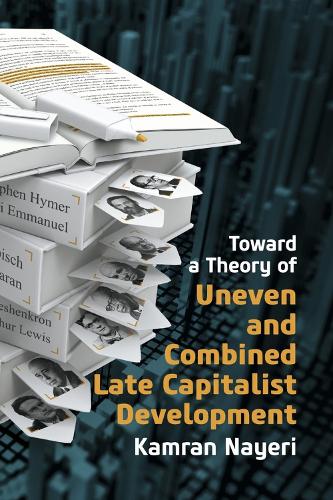
Toward a Theory of Uneven and Combined Late Capitalist Development
(Paperback)
Publishing Details
Toward a Theory of Uneven and Combined Late Capitalist Development
By (Author) Kamran Nayeri
BookBaby
BookBaby
18th June 2024
United States
Classifications
General
Non Fiction
Physical Properties
Paperback
526
Width 152mm, Height 228mm, Spine 33mm
802g
Description
In this book, I critically survey a representative set of theories of late capitalist development to outline a theory of uneven and combined development. The selected theorists and their focus are W. Arthur Lewis (growth with an unlimited supply of labor), Raul Prebisch and Arghiri Emmanuel (terms of trade and unequal exchange), Paul Baran (monopoly capital thesis), Stephen Hymer (internationalization of capital and uneven development), Nicholas Kaldor (cumulative causation model), Alexander Gerschenkron (relative backwardness thesis), and Ernest Mandel (search for surplus-profit and uneven and combined development). They provide a spectrum of theoretical approaches to late capitalist development, including economic development, international trade, industrial organization, post-Keynesian theory, economic history, and Marxian theory.
I focus on competition to analyze these theories and develop an outline of a theory of uneven and combined late capitalist development. In most economic theories, competition serves as the organizing principle and the medium of realization of the development process. Yet, the role of competition in theories of late capitalist development still needs to be examined. The book analyzes in detail the problem of competition, including in the labor market (Lewis, Prebisch, Emmanuel), commodity markets (Baran, Kaldor, Mandel), technology (Kaldor), management and firm organization (Hymer), finance (Gerschenkron), and the state (Baran, Hymer, Gerschenkron, Mandel). I explore the logic of these theories, how competition is conceived, and its role in understanding the late development process. The basic conclusion is that dynamic, evolutionary conceptions of competition, which are sensitive to the institutional context, limited internal capitalist development, and the capitalist world market, play an essential role in understanding late development. Static views of competition, to the contrary, undermine comprehension of the late development processes. Thus, some theories of late development offer important insights when static conceptions of competition are set aside (Lewis).
In contrast, others are limited by their static theories of competition (Prebisch, Emmanuel, and Baran). Still, others offer essential insight into the late development processes because they use a dynamic approach to competition (Hymer, Kaldor, Gerschenkron, and Mandel). Moreover, dynamic conceptions of competition, particularly the Marxian theory, offer a valuable framework for constructing a theory of uneven and combined late capitalist development.
Author Bio
Kamran Nayeri Ph.D. is a political economist who worked at the University of California and the State University of New York for 30 years. He has published extensively and served on editorial boards of scholarly journals and as a peer reviewer. He has been the editor of Our Place in the World: A Journal of Ecosocialism since 2009.
